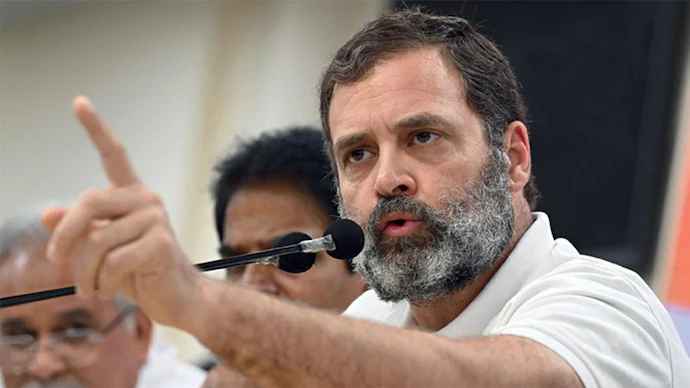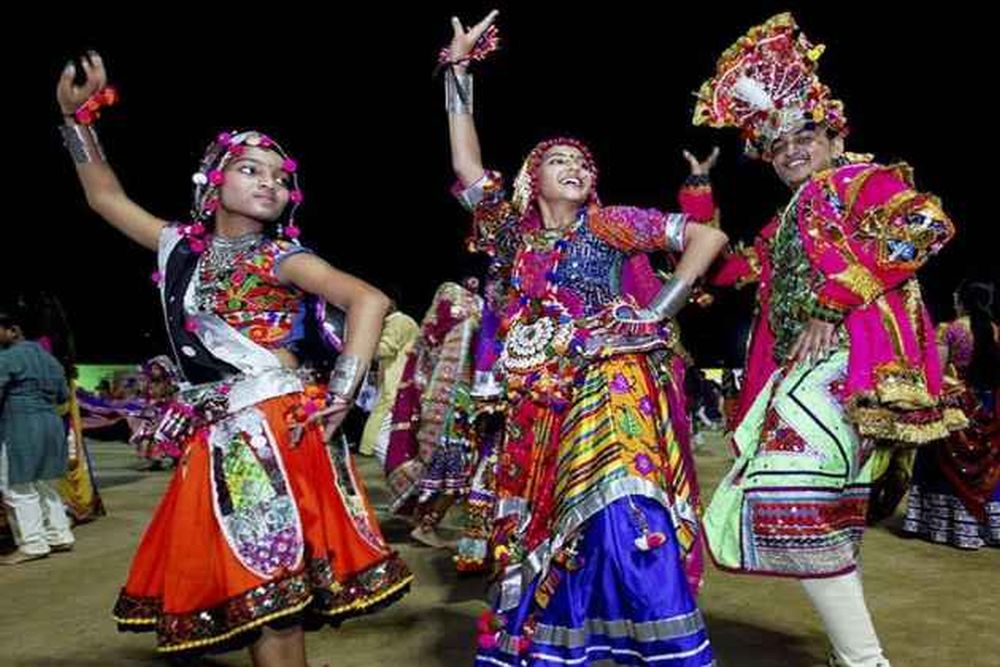Congress leader says youth will “protect the Constitution and stop vote theft”; BJP fires back with dynasty jibe and Nepal-style warning.
By: Javid Amin | 19 September 2025
A Rhetorical Escalation
After a fresh press conference in which Rahul Gandhi renewed allegations of mass voter deletion and appealed to the country’s youth — the so-called Gen Z — to “defend the Constitution” and “stop vote theft,” the Bharatiya Janata Party (BJP) responded with unusually stark language. BJP MP Nishikant Dubey posted on X that Rahul should “get ready to leave the country,” invoking the youth-led protests in Nepal and suggesting a similar political upheaval could be in the offing.
The exchange crystallizes a sharpening political rhetoric as parties position themselves ahead of the 2026 electoral cycle — with Gen Z emerging as a key demographic battleground.
What Rahul Said: Gen Z as Guardian of Democracy
At the heart of Rahul Gandhi’s message was a direct appeal to younger voters. After repeating his “vote chori” (vote theft) allegations at a press conference, he posted on X:
“The nation’s youth, the nation’s students, the nation’s Gen Z, will defend the Constitution, protect democracy, and stop vote theft. I always stand with them. Jai Hind!”
Rahul also challenged the Election Commission and Chief Election Commissioner Gyanesh Kumar, claiming his assertions were backed by “100 per cent proof” and demanding a response. The speech and posts were aimed at mobilizing young citizens around questions of electoral integrity and democratic protection.
BJP’s Riposte: From Sarcasm to Stark Warning
The BJP’s reply, carried by Nishikant Dubey on X, mixed sarcasm, political barbs and a grave warning:
-
Dubey mocked Rahul’s family legacy—“Gen Z is against family politics”—and pointed to the Gandhi family’s dynastic history.
-
He framed Gen Z as a corrective force that would reject “Parivarvaad” and corruption.
-
Most strikingly, he wrote: “Get ready to leave the country, they are coming………….” — a phrase that linked Rahul’s outreach to the youth-led upheavals in Nepal and Bangladesh and implied a potential purge of dynastic politics in India.
In follow-up posts and a comment to ANI, Dubey doubled down: Gen Z has been decisive before (citing anti-corruption movements), and the BJP — he said — would stand with the youth against dynastic parties.
Why the Nepal Parallel? Reading the Subtext
By invoking Nepal and Bangladesh, Dubey aimed to frame the protests there as proof that politically awakened youth can oust entrenched elites. The tactic serves two purposes:
-
Warning to Opposition: It suggests that if Rahul’s rhetoric inspires mobilization, it may lead to social upheaval the BJP can either harness or caution against.
-
Appeal to Youth: The BJP attempts to claim Gen Z as its own constituency — arguing young voters reject dynasty and corruption, implicitly aligning youthful energy with the ruling party’s narrative.
Analysts say the messaging mixes deterrence (warning the opposition) with recruitment (claiming the youth), and intentionally blurs lines between civil protest and political threat.
Political Risks: Escalation vs. Mobilization
This rhetorical escalation carries risks for both sides:
-
For Rahul Gandhi/Congress: Framing Gen Z as a defensive force against alleged institutional theft mobilizes young voters but risks being painted as incitement if leaders don’t carefully channel street energy.
-
For BJP: Suggesting opponents should “leave the country” inches toward charged rhetoric that critics will call inflammatory and undemocratic — especially given the sensitive regional history of youth protests.
-
For the public sphere: Such talk can polarize and harden narratives around legitimacy, possibly raising tensions in an already fraught pre-electoral environment.
What Observers Are Watching
-
Evidence & EC Response: Whether the Election Commission addresses Rahul’s claims on voter deletion will determine the next legal and political moves.
-
Youth Mobilization: True Gen Z momentum requires organization and grievances; analysts will watch student unions, social media trends and campus activism.
-
Rhetoric Moderation: Whether senior leaders step in to tone down or amplify the rhetoric will indicate whether this remains a messaging tussle or becomes a street phenomenon.
Bottom-Line: Rhetoric Meets Reality Ahead of 2026
Rahul Gandhi’s Gen-Z appeal and the BJP’s “Nepal-style” warning reflect a high-stakes contest over narrative, legitimacy and the loyalties of young voters. As both sides jockey for advantage, the real test will be whether political leaders keep the debate within democratic norms or allow it to spiral into confrontation.
For now, the message is clear from both camps: Gen Z matters — and the battle to win its allegiance has begun in earnest.
Quotes
-
Rahul Gandhi: “The nation’s Gen Z will defend the Constitution, protect democracy, and stop vote theft.”
-
Nishikant Dubey: “Get ready to leave the country, they are coming….”



